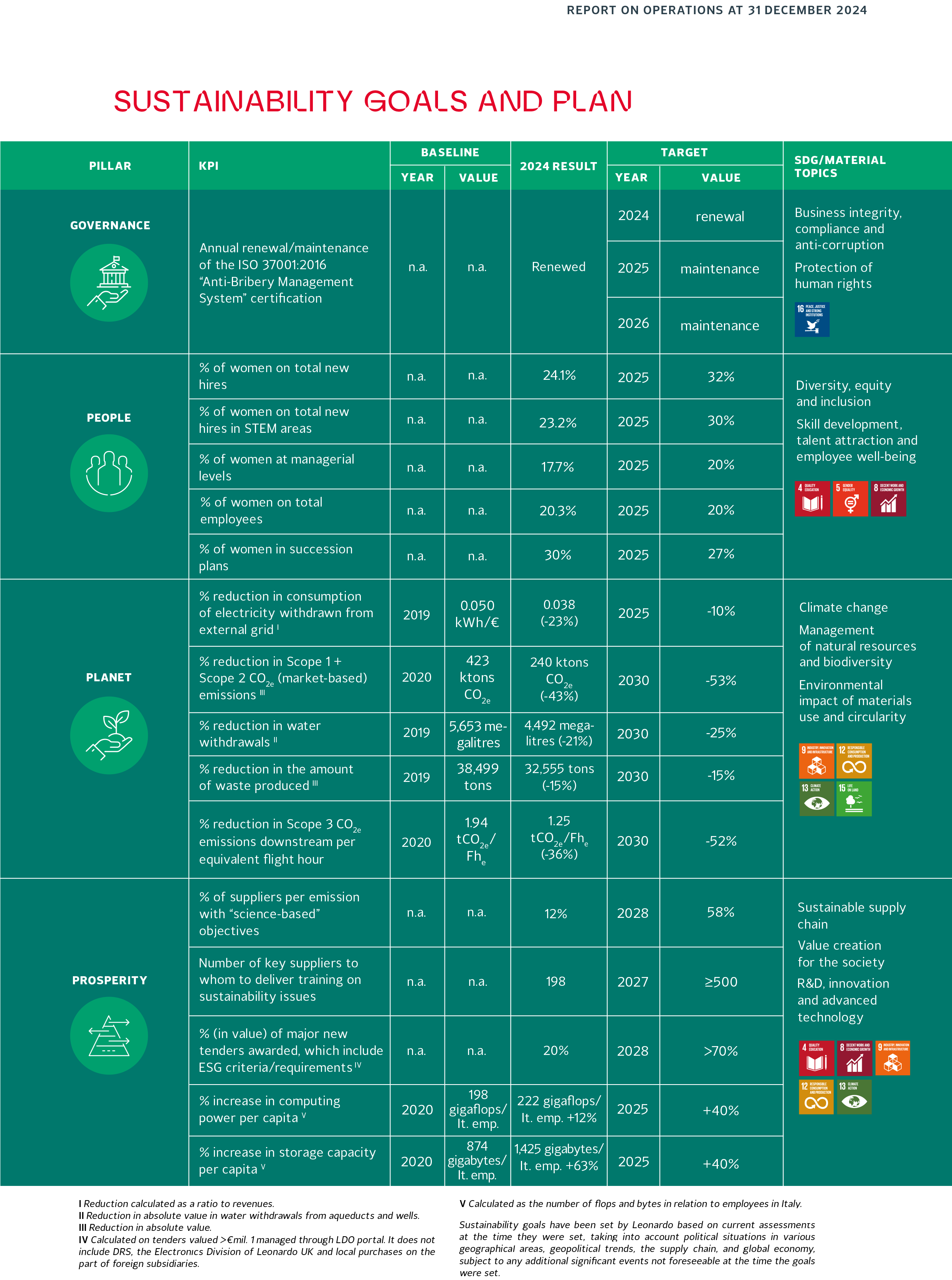The definition of a sustainable strategy for Leonardo is also based on materiality analysis, the key process to identify the Group's sustainability priorities. This process guides the identification of strategic goals, the definition of the Sustainability Plan and the drafting of the Integrated Annual Report.
In 2024, the materiality analysis was conducted according to the principle of double materiality, which combines impact and financial materiality, as set out in the Corporate Sustainability Reporting Directive (CSRD).
Impact materiality focuses on identifying, assessing and prioritizing the Group's impact on the environment, society and governance, considering the perspectives of both internal and external stakeholders. While financial materiality deals with ESG risks and opportunities that affect business targets.
In 2024, the impact materiality involved over 500 stakeholders representing 13 stakeholder categories, to intercept all the main instances of Leonardo's ecosystem. The process was divided into three stages: the analysis of the regulatory context, the identification of impacts and the assessment of their relevance. For financial materiality, Leonardo relied on the Enterprise Risk Management (ERM) of the Group.
By integrating the impact and financial materiality results 15 material topics were identified and then approved by the top management. The materiality process and related results were also reviewed and overseen by the Sustainability and Innovation Board Committee.



